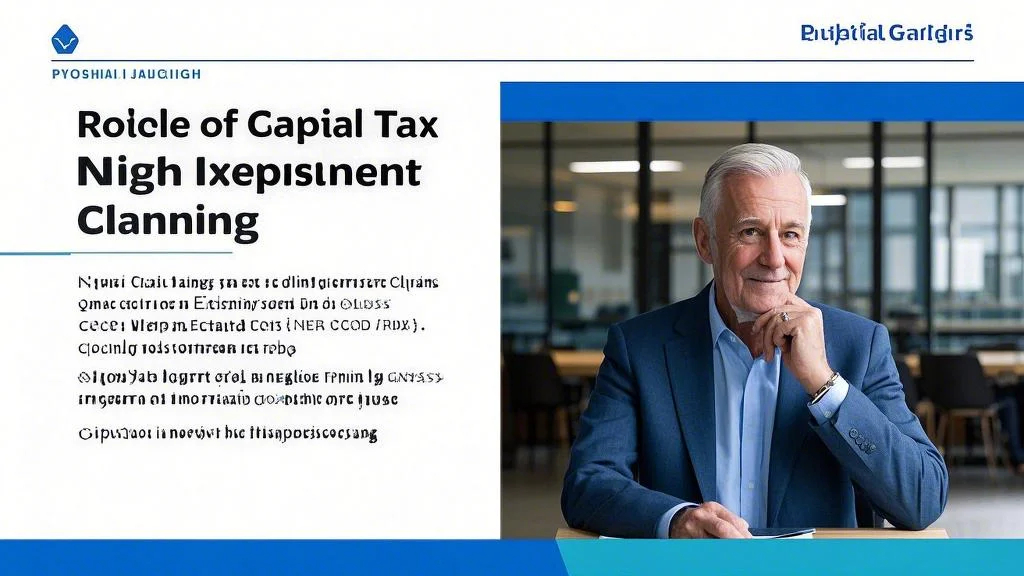Understanding Capital Gains Tax and Its Impact on High Net Worth Individuals
For high net worth individuals, navigating the complexities of capital gains tax is a critical component of investment planning. This tax, levied on the profit from the sale of assets such as stocks, real estate, or businesses, can significantly impact overall wealth accumulation and preservation. Unlike ordinary income tax, capital gains tax rates vary depending on the holding period of the asset and the taxpayer’s income level. For long-term investments held more than a year, the rates are generally lower, making strategic planning essential to minimize tax liabilities.
High net worth individuals often work with specialized advisors, such as those in a family office, to develop strategies that optimize their tax position. These strategies may include timing the sale of assets to qualify for lower tax rates, utilizing tax-loss harvesting to offset gains, or investing in tax-advantaged accounts. By proactively addressing capital gains tax, individuals can retain more of their wealth and reinvest it to achieve their financial goals. Additionally, integrating estate planning into the broader strategy ensures that wealth is preserved for future generations.
Estate Planning: Aligning Capital Gains Tax with Wealth Transfer Goals
Estate planning is a cornerstone of high net worth financial strategies, and it plays a crucial role in managing capital gains tax liabilities. When assets are transferred to heirs, they may be subject to both capital gains tax and inheritance tax, depending on the jurisdiction. Without proper planning, these taxes can erode a significant portion of the wealth intended for future generations. A well-structured estate plan can help mitigate these challenges by utilizing tools such as trusts, gifting strategies, and stepped-up cost basis provisions.
One effective strategy is to transfer assets during one’s lifetime, taking advantage of annual gift tax exclusions and lifetime exemption limits. This approach not only reduces the taxable estate but also allows heirs to benefit from a stepped-up cost basis, potentially lowering their capital gains tax liability when they sell the assets. Additionally, establishing a family office can provide centralized management of these strategies, ensuring that all aspects of wealth transfer are coordinated and optimized.
The Role of Family Offices in Tax-Efficient Wealth Management
A family office serves as a dedicated resource for high net worth families, offering comprehensive services that include investment management, estate planning, and tax optimization. When it comes to managing capital gains tax, a family office provides tailored solutions that align with the family’s long-term goals. This may involve creating customized investment portfolios designed to minimize taxable events, such as frequent trading, or leveraging tax-deferred accounts to grow wealth more efficiently.

In addition to investment strategies, a family office can facilitate philanthropic initiatives that offer tax benefits. For example, donating appreciated assets to a charitable trust can eliminate capital gains tax while providing a charitable deduction. This approach not only supports meaningful causes but also enhances the family’s overall tax efficiency. By integrating these strategies into a cohesive plan, a family office ensures that wealth is preserved and transferred in the most tax-efficient manner possible.
Wealth Transfer Strategies: Minimizing Capital Gains and Inheritance Taxes
Effective wealth transfer strategies are essential for high net worth families seeking to minimize both capital gains tax and inheritance tax. One common approach is the use of irrevocable trusts, which remove assets from the taxable estate while providing control over how they are distributed. These trusts can be structured to take advantage of stepped-up cost basis rules, reducing the capital gains tax burden on beneficiaries.
Another strategy involves the strategic use of life insurance policies. By placing a policy within an irrevocable life insurance trust (ILIT), the death benefit can be excluded from the taxable estate, providing liquidity to cover inheritance tax liabilities without eroding the family’s wealth. Additionally, gifting strategies, such as funding 529 plans for education expenses, can reduce the taxable estate while supporting the next generation’s financial needs. A family office can help design and implement these strategies, ensuring they align with the family’s broader financial objectives.
Inheritance Tax: Navigating the Complexities of Wealth Transfer
While capital gains tax focuses on the sale of assets, inheritance tax applies to the transfer of wealth upon death. For high net worth individuals, this tax can represent a significant financial burden, potentially reducing the amount of wealth passed on to heirs. However, with careful planning, it is possible to minimize the impact of inheritance tax and ensure a smooth wealth transfer process.
One effective strategy is to establish a family office that coordinates all aspects of estate planning and tax optimization. This may include creating trusts, utilizing lifetime gifting strategies, and leveraging exemptions and deductions. Additionally, charitable giving can play a role in reducing the taxable estate while supporting causes that align with the family’s values. By taking a proactive approach to inheritance tax planning, high net worth individuals can preserve their legacy and provide for future generations.
Conclusion: Integrating Capital Gains Tax Planning into a Comprehensive Strategy
For high net worth individuals, managing capital gains tax is a vital aspect of investment and estate planning. By working with a family office and implementing strategies such as gifting, trusts, and tax-efficient investments, individuals can minimize their tax liabilities and maximize wealth preservation. Additionally, addressing inheritance tax and ensuring a smooth wealth transfer process are essential for protecting the family’s financial legacy. With a comprehensive approach that integrates all these elements, high net worth individuals can achieve their financial goals and secure their wealth for generations to come.
